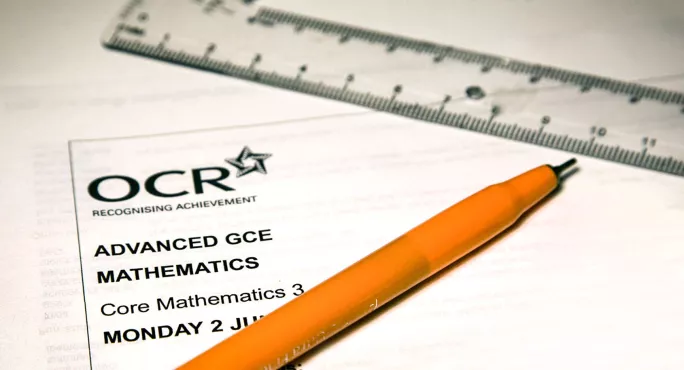As one of the UK’s main exam boards, OCR and its qualifications will be familiar to many people.
A registered charity with its roots in the country’s most prestigious universities, OCR offers a host of GCSEs and A levels alongside more than 100 vocational qualifications.
What is OCR?
Owned by the University of Cambridge, OCR (Oxford, Cambridge and RSA Examinations) is an awarding body that uses around 8,000 examiners and assessors to set, mark and moderate exams and assessments sat by more than 1 million candidates in the UK each year.
The organisation, whose CEO is Jill Duffy, operates in the UK as part of Cambridge University Press and Assessment, which is also a dominant provider of international and English language qualifications.
How long has it been in existence?
OCR, in its current form, was founded in 1998, although its history goes back much further.
The University of Cambridge Local Examinations Syndicate (UCLES) was founded in 1858 to provide exams to people not attending the university. In 1995 it took over the functions of the University of Oxford Delegacy of Local Examinations (founded in 1857) and the Oxford and Cambridge Schools Examinations Board (founded in 1873), which were both abolished.
It then merged with the vocational qualifications-focused Royal Society of Arts Examinations Board (RSAEB) to form OCR in 1998.
Find out more about OCR’s history.
What exams and subjects does OCR cover?
OCR offers GCSEs and A levels in more than 40 subjects. It was the only exam board charged with developing a new natural history GCSE, which the Labour government has confirmed will be introduced.
The exam board is also creating a fully digitally assessed GCSE in computer science. The introduction of this is subject to the approval of exams regulator Ofqual.
OCR offers more than 100 vocational qualifications, including Cambridge Technicals, for learners over 16, in subjects such as art and design, business, digital media, engineering, health and social care, IT and sport.
Has it been involved in any controversies?
OCR has been involved in some controversies over exam papers in recent years.
One notable mistake was in 2017 when a question in the reformed OCR GCSE English literature exam, taken by 14,000 students, swapped the surnames of the families in the play Romeo and Juliet, asking how Tybalt’s hatred of the Capulets influenced the outcome of the play. Tybalt is actually a Capulet.
OCR apologised, saying no one would be disadvantaged by the error, while Ofqual said it was “very disappointed” by the mistake. The board was fined £175,000 for its error.
In June 2025 OCR apologised to all students and teachers impacted by errors in its A-level physics papers, saying it planned to investigate how the mistakes had slipped through undetected.
Five errors in total were identified by OCR. One was the inclusion of four numbers on a spreadsheet in paper 2 that did not match the values on an accompanying graph.
For an indispensable look at the week’s biggest stories and talking points, sign up for our Weekly Debrief newsletter





